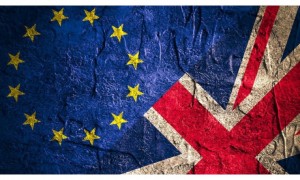IABM report reveals industry vendor and end-user attitudes to Brexit vote
 IABM has released the results of a survey on the potential effects of Brexit on broadcast and media technology suppliers and end-users. Conducted during September, the survey was carried out among UK and European broadcast and media companies. The report can be downloaded here.
IABM has released the results of a survey on the potential effects of Brexit on broadcast and media technology suppliers and end-users. Conducted during September, the survey was carried out among UK and European broadcast and media companies. The report can be downloaded here.
The survey looks across the range of potential issues for businesses, from what kind of post-Brexit trading and political relationship the UK will be most likely to have with Europe, how this might affect companies’ investment plans and their ability to recruit skilled staff, and how the fall in the value of the British pound may impact balance sheets. Finally, the report includes some anecdotal feedback that shows the range of opinion on Brexit is significantly less in favour within the industry than was reflected in the close referendum result. Headlines are:
- A hybrid trade deal is seen as the most likely outcome when the negotiations are completed in 2019.
- 46% of respondents felt their businesses would be slightly affected as a result of trade restrictions, with a further 30% expecting to be highly affected.
- Most companies (between 66% and 88%) do not foresee reducing investment on four key areas – R&D, Recruitment, Training and Sales & Marketing – with recruitment being the most vulnerable at 66%, and R&D least so at 88%.
- 80% of end-users do not plan to reduce their investment in the UK – with 10% planning to do so and 10% uncertain.
- For 70% of research participants, exchange rate volatility is reducing investment incentives.
- 57% of respondents said that their organisations had not experienced any decrease in orders as a result of the Brexit vote – with 17% reporting negative effects.
- Most participants have not experienced any revenue (49%) or cost (47%) change. However, more companies have experienced revenue decreases than revenue increases and more companies have experienced cost increases than cost decreases.
- 57% of respondents said that restrictions on EU immigration would exacerbate skills shortages and make talent hunting more difficult.
